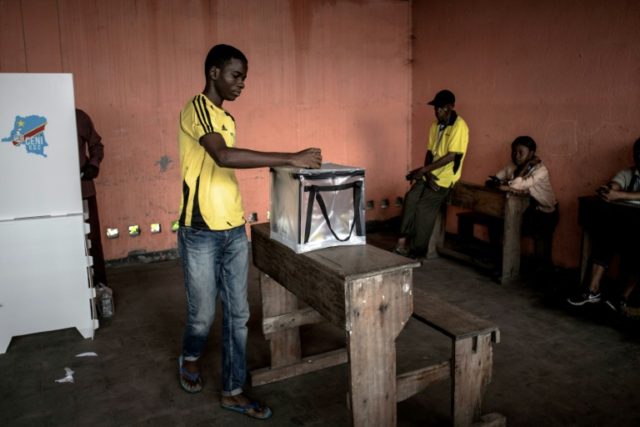Millions of voters took to the polls across the Democratic Republic of the Congo (DRC) to participate in the December 30 elections, but the country’s election body delayed releasing the results, prompting concerns of fraud this week.
Western powers, including the United States, and the DRC’s powerful Catholic Church hope sub-Saharan Africa’s biggest country will experience its first peaceful transition of power since it declared independence in 1960.
For now, however, the country’s National Independent Electoral Commission (CENI) is refusing to release the results of the presidential, legislative, and provincial assembly elections on December 30, citing logistical problems, including delays in counting all of the votes.
The delay has triggered an outcry from individuals home and abroad awaiting the results of the historic elections.
DRC’s President Joseph Kabila should have stepped down at the end of his two terms in 2016 as mandated by the country’s constitution. Nevertheless, the Agence France-Presse (AFP) news agency reports:
He invoked a caretaker clause in the constitution to stay on, sparking protests that were ruthlessly crushed, leaving scores dead. Elections to succeed him were delayed several times before they finally took place, and were further postponed in several areas hit by violence.Tension has risen further over the marathon counting process with opposition fears running high that the result will be rigged to favor Mr Kabila’s preferred successor, Emmanuel Ramazani Shadary.
President Kabila, in power since 2001, did not to run in the elections, which featured 21 candidates vying for the presidency, including the sitting leader’s handpicked successor.
Echoing the DRC’s Catholic Church in a statement issued Thursday, Robert Palladino, a spokesman for the U.S. State Department, urged the DRC to release “accurate results” in a transparent way, calling on the country’s government to remove restrictions on internet access and media.
DRC Authorities have reportedly blocked French public-service broadcaster, Radio France Internationale (RFI), which has a significant following in the African country, a former colony of France.
Palladino stated:
We strongly urge the CENI to ensure that votes are counted in a transparent and open manner, with observers present, and that the results reported by CENI are accurate and correspond to results announced at each of DRC’s 75,000 polling stations. … There are moments in every nation’s history when individuals and political leaders step forward and do the right thing. This is one of those moments for the DRC. … Those who undermine the democratic process, threaten the peace, security or stability of the DRC, or benefit from corruption may find themselves not welcome in the United States and cut off from the U.S. financial system.
The U.S. acknowledged that confusion over the location of polling stations, the posting of voter lists, the late delivery of some election materials, and CENI’s decision to cancel elections in parts of the country “disenfranchised voters.”
Despite the challenges, up to 30 million Congolese went to the polls peacefully, State notes.
At France’s request, the United Nations Security Council is expected to hold a closed-door meeting Friday on the elections.
The National Episcopal Conference of Congo (CENCO) called on the country’s election panel to publish the “truth,” saying it knows who won the delayed presidential election.
Without explicitly revealing the person’s identity, Father Donatien Nshole, a spokesman for CENCO, told reporters that “data in its possession from vote counting reports from polling stations designates the selection of one candidate as president.”

COMMENTS
Please let us know if you're having issues with commenting.